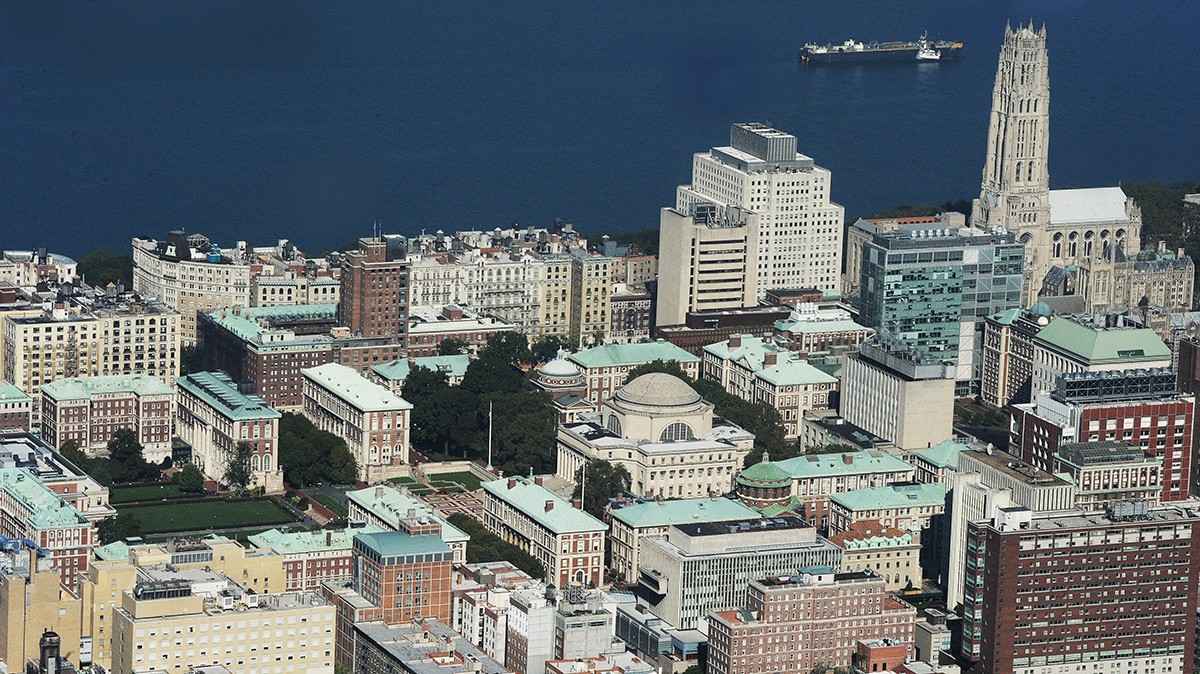Update on Research and the Next Academic Year

Dear fellow members of the Columbia community:
As one of the most perplexing and difficult semesters in memory draws to an end, I write now with some updates on the shape of the summer and the academic year to come.
Let me just begin by expressing, once again, our genuine gratitude for the extraordinary ways in which every member of the University community has responded to the challenges posed by the COVID-19 pandemic, first and foremost, of course, our colleagues at the Medical Center. This has been a spring for the ages, and my deepest hope is that the goodwill and collective effort manifested in this crisis will continue to sustain us in the months and years ahead.
At this very moment, I am especially thinking of our graduating classes and of how our campus would ordinarily be filled with the anticipation of one of the most uplifting and magnificent academic ceremonies on the planet. Though we will all gather virtually for these milestone events, having to forego what we wish most for will only magnify the feelings of warm connection we will have in the years to come with the Class of 2020. As I plan to say on Commencement day, these strange and frightening times have most certainly deepened our collective appreciation of the University’s many vital roles in society, beginning with the search for fundamental knowledge and carried through to the care of humanity and the world.
As disjointed as this moment has come to feel, as filled as it is with deep uncertainties, we must move forward. I write first, then, about the state of our research.
Over the last several weeks, we have developed an intricate plan for returning to laboratory research that has necessarily been suspended. Following the guidance of our public health experts, and pending the approvals from the State to ease stay-at-home orders in New York City, we will gradually allow our faculty and certain graduate students to return to their lab research sites, ensuring, most of all, of course, the safety of our community. It is our hope that this plan can be activated as early as June. Ira Katznelson has communicated the details of our schedule and the conditions to our researchers.
We also have been intensely focused on the general form of our next academic year. We all wish to return to in-person instruction and campus life, and our intent is to make that possible as soon as it is safe to do so. The hard fact is, however, that we just cannot predict now when that moment will arrive. Yet, we can put in place structures that maximize prospects for that outcome and offer meaningful steps along the way.
Our primary goal must be to create as rich an academic experience as possible, in whatever form that will take, while preparing to bring us back together at the earliest feasible moment. No doubt social distancing techniques will be with us for some time, which, of course, complicates the logistics of the return. Taking these and other factors into account, we have made one key decision: to prepare to use the three upcoming academic terms—fall 2020, spring 2021, and summer 2021—as a unit of time in order to provide us with the greatest amount of flexibility in organizing our educational experiences.
By leveraging a longer period of time, we will be able to de-densify our campus so that all students may experience much, if not most, of their coursework in person over the arc of the three terms. While this is just the beginning of a University-wide effort to determine the specifics of the academic year, we now have the capacity to tap into the rich expertise and creativity of our University leaders and faculty to shape the substance and content of this one-time arrangement. By July 1, Ira Katznelson, our spectacular deans, and I will have more details to share about how the three terms will be composed.
May is always filled with the sense of exhilaration of admitting new classes across our schools and colleges. It is natural to wonder—and we have—how the understandable anxieties among our prospective students about how the current crisis will affect their beginnings at Columbia will in turn affect their college plans.
Amid such uncertainty, it gives me great pleasure and pride to share that all we now know suggests we will welcome one of the most talented and formidable cohorts of new students this fall. As with their predecessors, these exceptional individuals will add immeasurably to the intellectual life at Columbia, perhaps even more than usual because they have already displayed a kind of courage and fortitude to maintain a steady course in the search for knowledge.
One can only feel a sense of humility in the face of the broad human response as we grapple with a threat as menacing as COVID-19. And one can only feel thankful for our universities and for Columbia, in particular. New York City is almost always the epicenter of crises that strike this nation, and Columbia University in the City of New York is, therefore, too. This is not exactly to be wished for, but it does create, over time, an intellectual character that is grounded in the hard realities of existence. And, on balance, inhabiting a space imbued with that character is where I would rather be. I trust that view is shared by everyone at Columbia.
From the President’s House, Jean and I send you our very best.
Sincerely,
Lee C. Bollinger